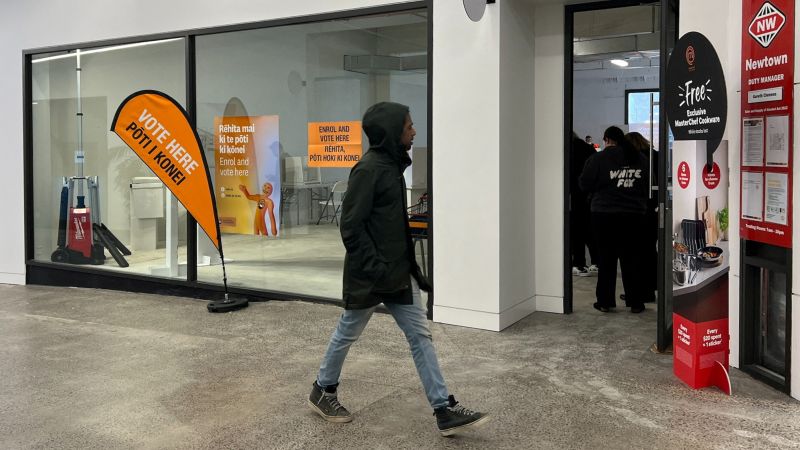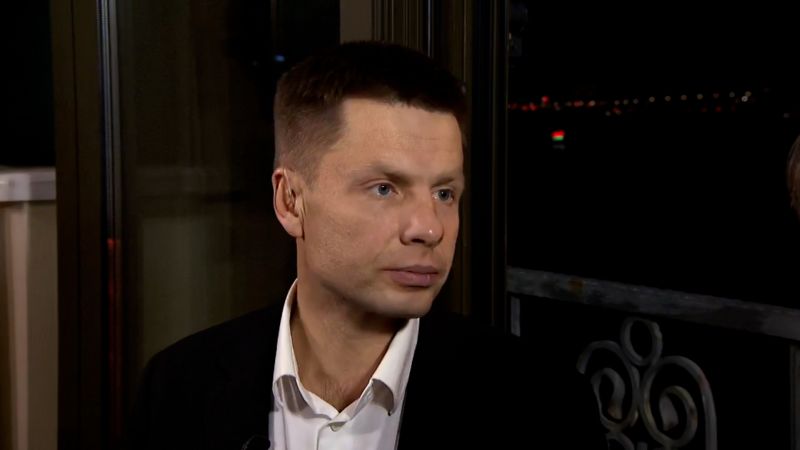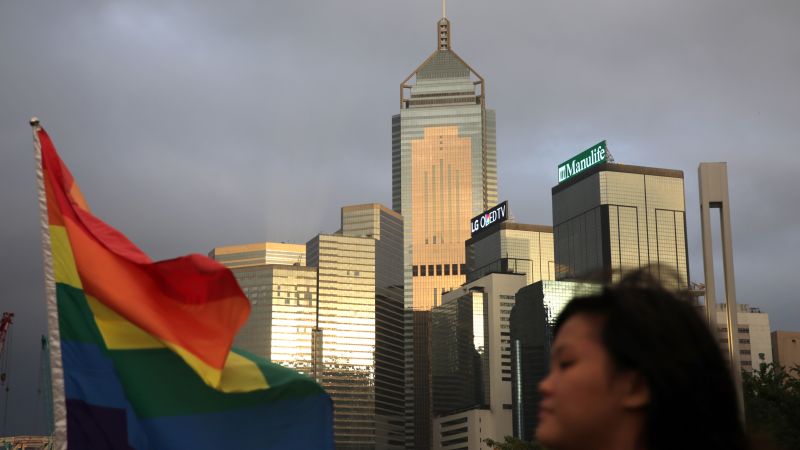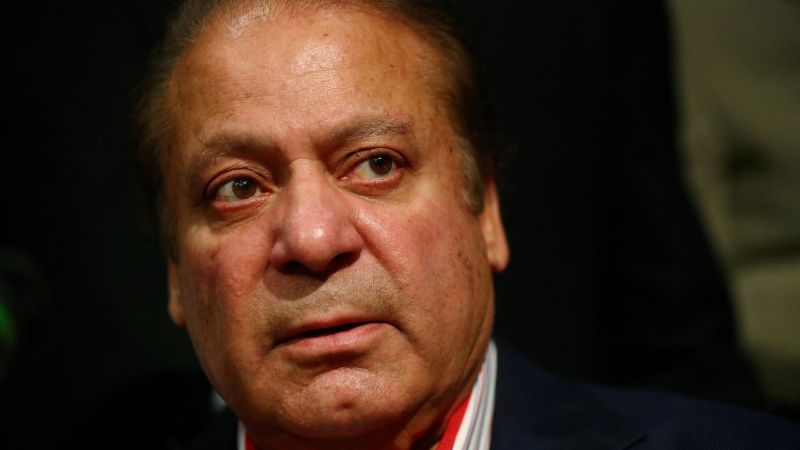New Zealand shifts right as voters punish ruling party

CNN
—
New Zealand Prime Minister Chris Hipkins has conceded his Labour party lost Saturday’s election, as voters punished the government and took the country rightwards nine months after his predecessor Jacinda Ardern suddenly resigned.
The rising cost of living dominated campaigning with voters New Zealanders ending six years of Labour Party rule, the latter half of which was dominated by the country’s strict response to the coronavirus pandemic that successfully kept infections low but battered the economy.
With more than 98% of votes counted, the center-right National Party, led by former airline executive Christopher Luxon, had amassed around 40% of ballots, according to New Zealand’s Electoral Commission.
A dejected Hipkins told supporters that Labour did not have enough votes to form a government.
“The result tonight is not one that any of us wanted,” he said, according to RNZ. “I gave it my all to turn the tide of history but alas, it was not enough.”
Luxon said New Zealanders had “voted for change” and that his party would now get to work trying to form a coalition.
“Tonight you have given us the mandate to take New Zealand forward,” he told supporters.
Coalitions are the norm under New Zealand’s mixed-member proportional system, which was introduced in 1996.
The nationalist NZ First party and its leader Winston Peters could potentially become kingmaker in a coalition administration alongside the libertarian, right-wing Act Party.
The only party to win a majority of votes and govern alone in the current political system was Labour in 2020, when Ardern won a landslide second term buoyed by her success at handling the country’s coronavirus outbreak.
But Ardern announced her shock resignation in January, saying she no longer had enough fuel in the tank to contest an election, and passed the reins of her party on to Hipkins.
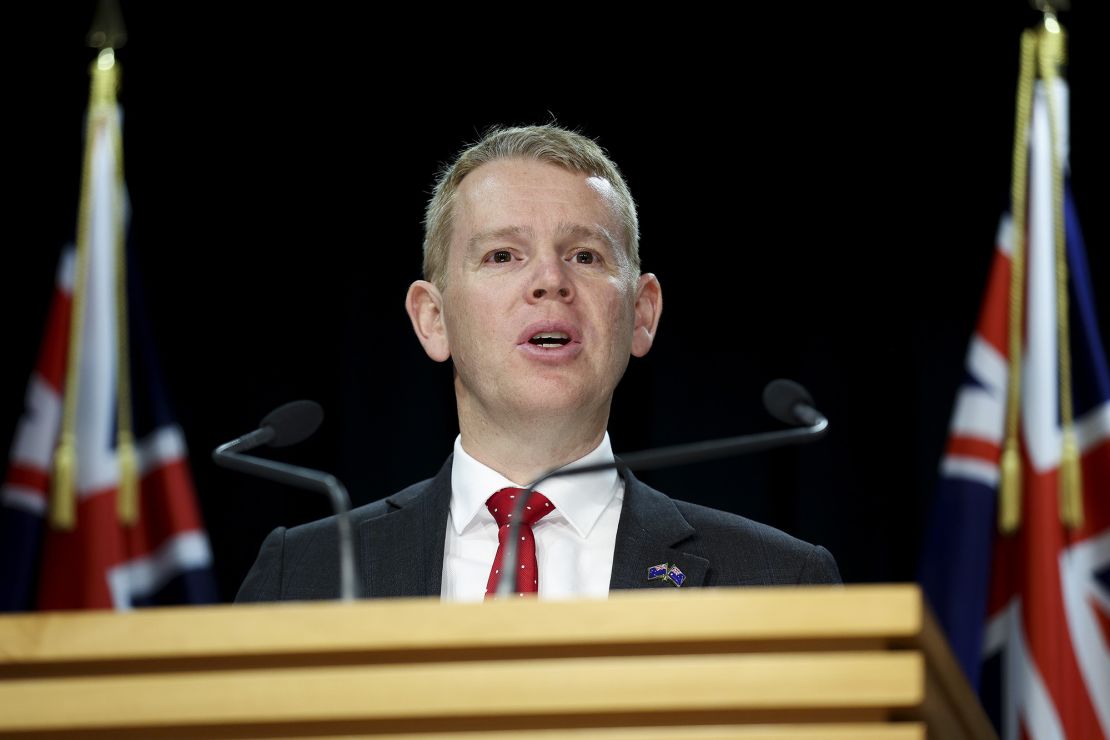
A progressive global icon, Ardern’s time in power was defined by multiple crises, including the Christchurch terrorist attack, a deadly volcanic explosion, and a global pandemic.
Overseas she became famous for being a leader unafraid to show empathy and compassion at a time when populist demagogues were coming to the fore in many other western democracies.
But back home her popularity ebbed amid a rising cost of living, housing shortages and economic anxiety. And she faced violent anti-lockdown protests in the capital Wellington, with threats made against her.
Ardern’s successor as Prime Minister, Chris Hipkins, inherited these issues which have since been compounded by a sluggish economy, an historically high inflation rate of 6% and an accounts deficit that has concerned ratings agencies.
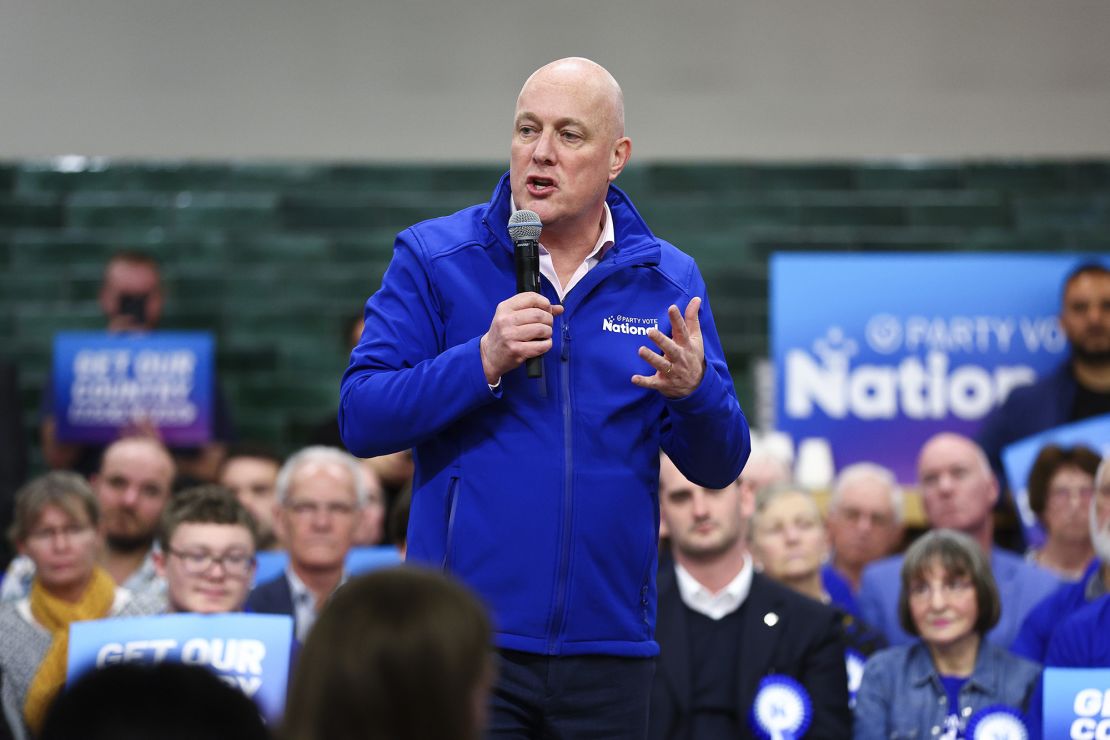
It’s the first election in New Zealand following the end of strict coronavirus lockdown measures that have been a source of contention for many. The government’s “go hard and go early” approach to the pandemic saw New Zealand impose some of the world’s strictest border rules, separating families and shutting out almost all foreigners for almost two years.
It meant New Zealand suffered far fewer Covid infections and deaths compared to many countries, like the United States or United Kingdom. But many residents felt the government went too hard on its measures.
“They were damned if they did and damned if they didn’t,” said Alex Wareham, a bartender from Auckland, who added that because people didn’t “have the human toll to focus on they are thinking our economy was ruined, the country was shut down.”
“It was always going to be a lose-lose for Labour, no matter which way you look at it… but it feels a National government during Covid would have done it the same way,” she said.
Saturday’s election took place the same day Australian voters struck down the first attempt at constitutional change in 24 years that would have recognized First Nations people in the nation’s founding document.
All the main New Zealand parties pledged to improve the economy, provide relief for the cost of living crisis, boost jobs, and improve health and education facilities, as well as housing.
Central to National’s 100-day plan is its promise for myriad tax cuts, including cutting a regional fuel tax. It also is pledging to change the Reserve Bank’s mandate to focus on inflation, remove what it calls red tape for businesses, extend free breast cancer screenings, crack down on crime and give police greater powers to search gang members, and roll back a raft of policies implemented by Labour over the past six years.
Labour’s policies include extending free dental care to under 30s, easing rising food prices by removing the goods and services tax from fruit and vegetables, teaching financial literacy in schools and expanding free early education, and extending financial support to working families.
Hipkins, 44, was first elected to Parliament in 2008 and spearheaded the country’s Covid-19 policies in 2020. Before becoming prime minister, he was minister of education, minister of police, minister for the public service, and leader of the house.
His campaigning was briefly hampered by a positive Covid-19 diagnosis at a critical juncture just two weeks out from the election, which prevented him from being on the road for five days.
Luxon, 53, is a businessman and former CEO of Air New Zealand who became leader of the National Party in 2021. Before becoming leader of the opposition, he was party spokesman for various government departments and a member of several select committees.
Voters get two votes on the ballot: one for a candidate in their local constituency and one for the party. A party needs at least 5% of the vote or a winning constituency candidate to claim a seat in parliament.
To form a government, a party or coalition needs 61 of the 120 seats in New Zealand’s single-house parliament – about 48% of the popular vote.
Official results will be announced by the election commission about three weeks after the vote.


